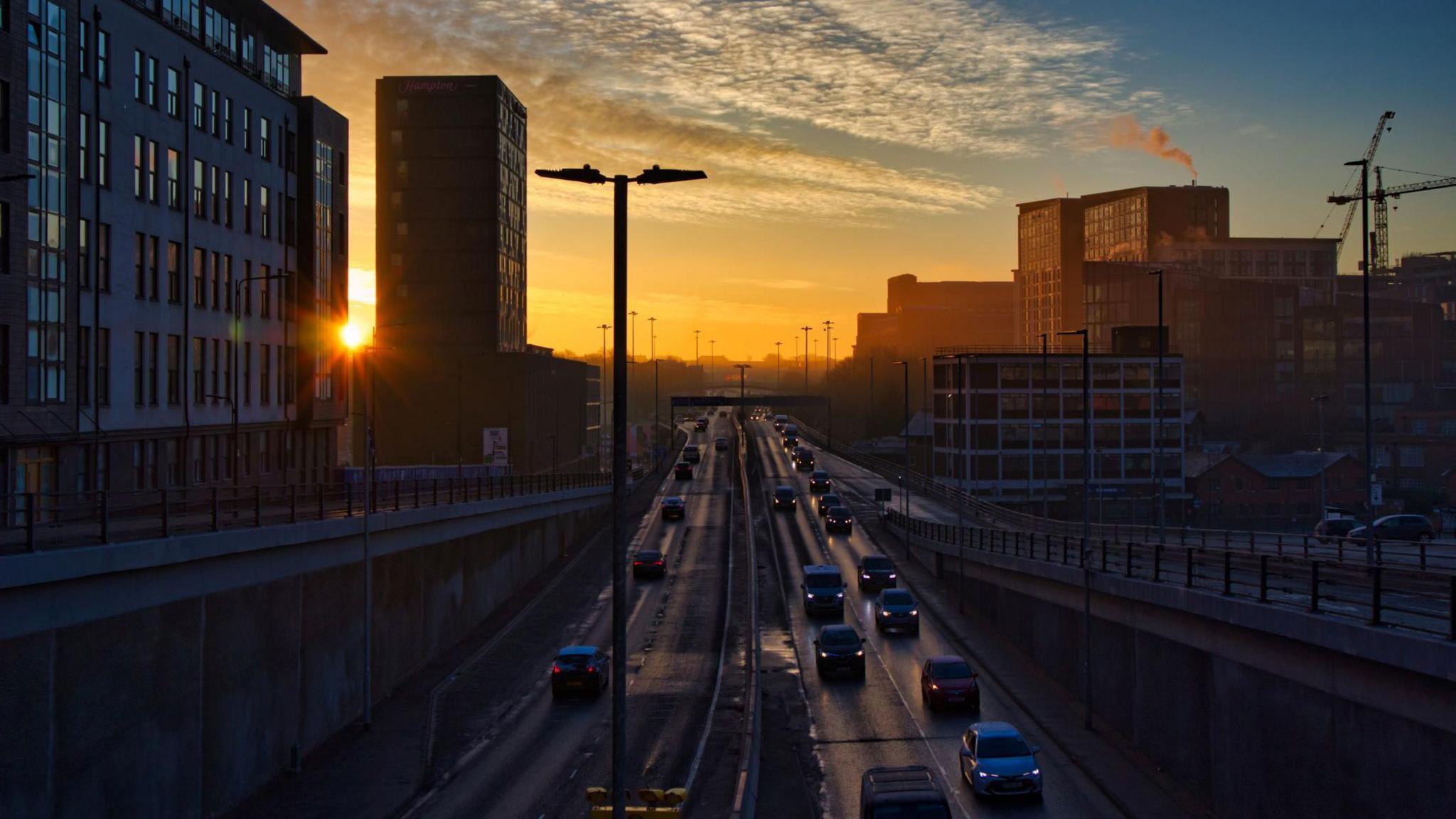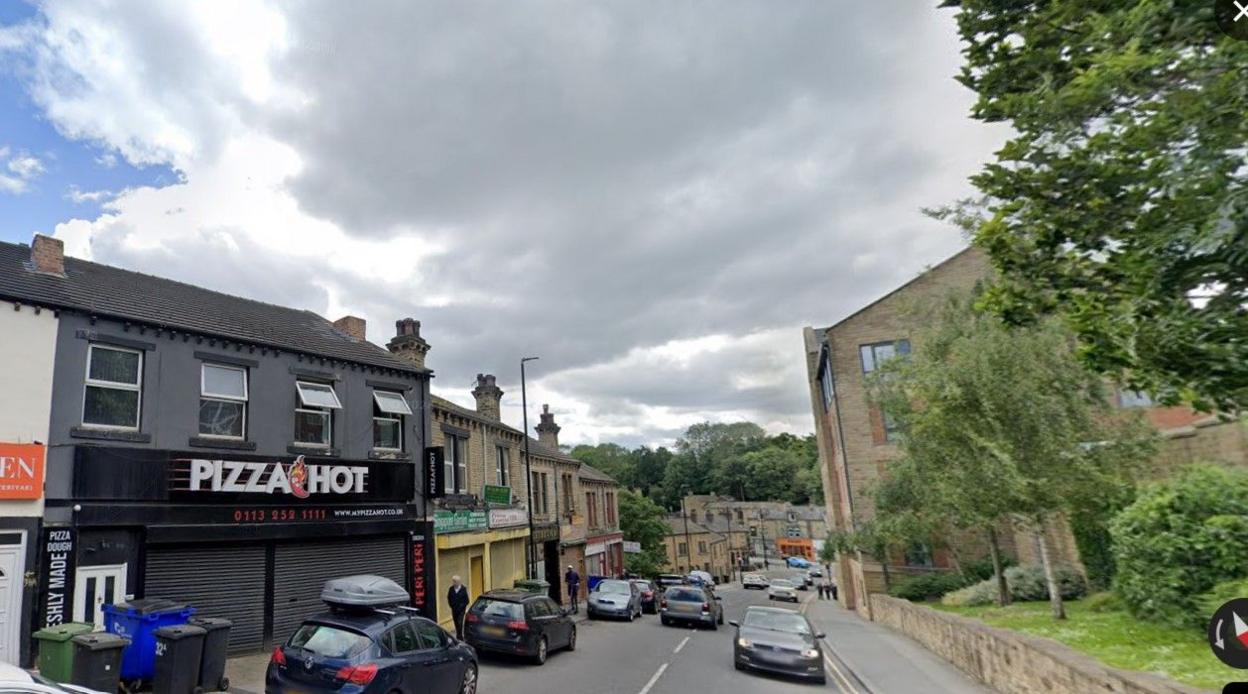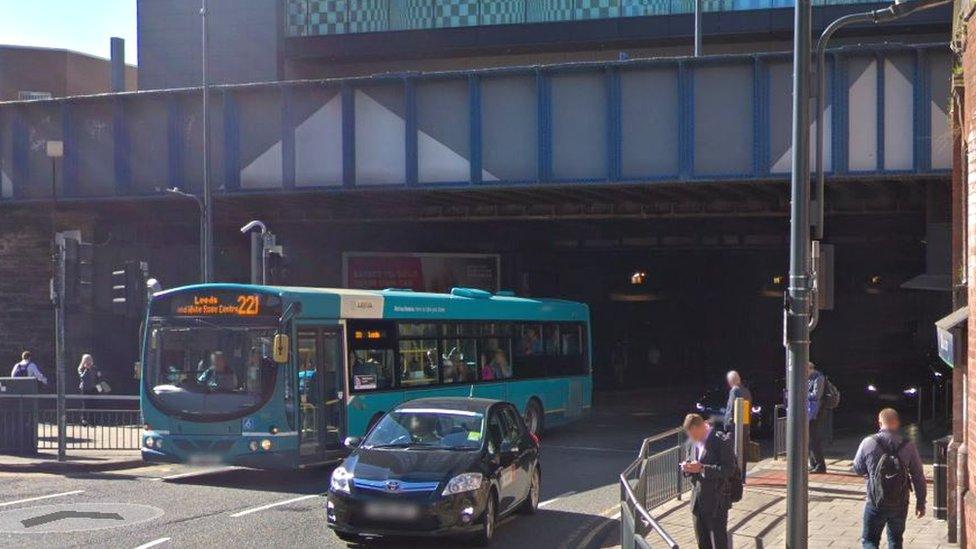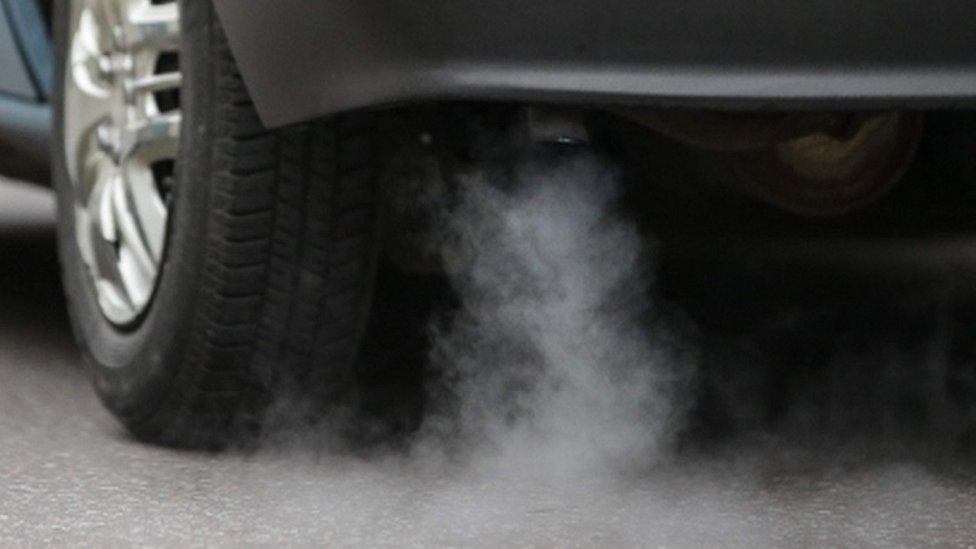Air quality improves at city's pollution hotspots

Air Quality Management Areas (AQMA) were put in place across the city in areas where pollution was exceeding national guidelines
- Published
Five pollution hotspots in Leeds have been removed from an action list after improvements in air quality.
Air Quality Management Area (AQMA) status was imposed on the neighbourhoods between 2001 and 2017 because annual average nitrogen dioxide levels exceeded legal limits.
Leeds City Council said the decision to revoke the AQMAs had been made after monitoring showed air quality "to be within the UK guidelines for a number of years".
Changing travel behaviours, a rise in the use of electric vehicles and major highways improvements were among factors likely to have contributed to the city’s healthier air, the authority said.

Chapel Hill in Morley is one neighbourhood where pollution has reduced
The five areas where the AQMAs have been removed are: Ebor Gardens in Burmantofts, Caspar Apartments in Little London, The Normans in Kirkstall, The Tilburys in Holbeck and Chapel Hill in Morley.
Nitrogen dioxide is mainly generated by vehicle exhaust emissions and all the AQMA areas were close to busy roads, the council said.
A sixth AQMA covering Main Street in Pool-in-Wharfedale met air quality objectives for the first time in 2023 but the council said it would remain in place to allow for continued assessment.
It added that monitoring would also continue at the locations of the revoked AQMAs "for the foreseeable future to ensure levels stay compliant".
The council said a number of schemes had been put in place to tackle pollution from homes, transport and businesses as part of its Air Quality Strategy Action Plan.
'Protect everyone's health'
These include greener travel methods in the city such as electric bin lorries, retrofitting of buses with cleaner technology, a public bike-sharing scheme and improving infrastructure for cyclists and walkers.
Councillor Mohammed Rafique, executive member for climate, energy, environment and green space, said: “It is fantastic news that air quality in some of our most congested areas has improved to such an extent that these AQMAs – some of which date back over 20 years – have now been formally revoked."
“Breathing in polluted air can lead to serious and long-lasting health problems and it has long been our priority to tackle this critical issue and protect the health of everyone in the city."
Listen to highlights from West Yorkshire on BBC Sounds, catch up with the latest episode of Look North or tell us a story you think we should be covering here, external.
- Published27 February 2019

- Published22 January 2019
